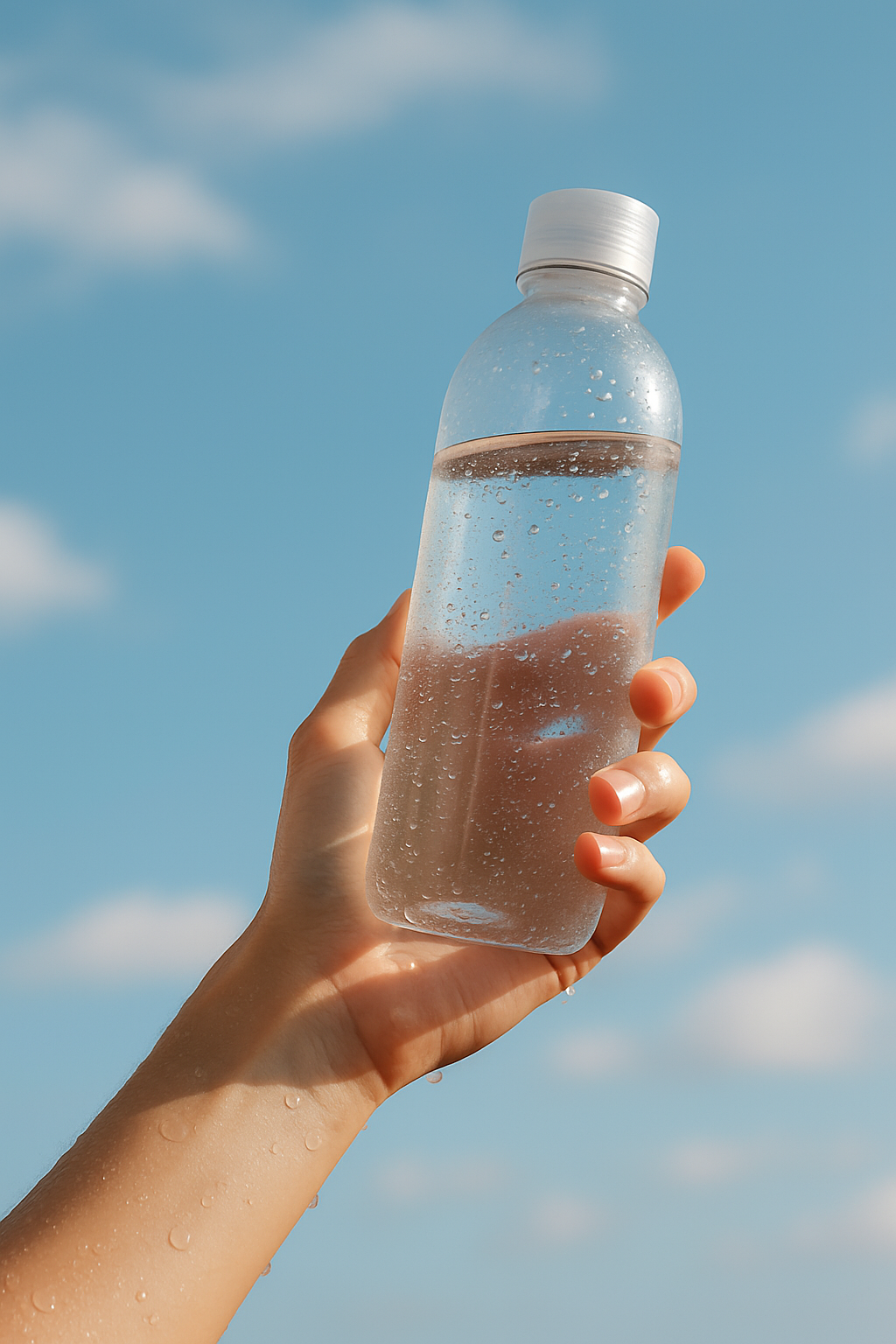
Happy Hydration, Happy Skin
Clear, evidence-based skincare guidance for real life and real skin.
Understanding the Link Between Hydration and Skin Health
Staying well-hydrated is essential for healthy skin. Water helps maintain moisture levels, supports skin elasticity, and ensures your skin is functioning at its best.
Proper hydration supports skin barrier function, protecting it from environmental stressors like pollutants, UV radiation, and harsh weather. However, the skin’s outer layer (the stratum corneum) naturally loses water throughout the day — a process called transepidermal water loss (TEWL). This is why topical hydration also matters. Ingredients like humectants (which attract water) and occlusives (which lock it in) can help the skin hold onto moisture more effectively.
How This Can Present on Skin
Barrier Function: A well-hydrated barrier retains moisture and protects against irritants and pollutants, helping to minimise dermatitis (eczema), allergies, and flare-ups.
Dryness and Tightness: Lack of hydration can lead to tight, dry, and flaky skin, making it more vulnerable to irritation and environmental damage.
Fine Lines: Dehydrated skin can appear less firm, causing fine lines, or making existing ones more noticeable. The lack of moisture can also reduce elasticity.
Sensitive Skin: Insufficient hydration can make the skin more prone to redness, irritation, and sensitivity.
Healing: Dehydrated skin may take longer to repair damage or wounds.
Oil Balance: Dehydrated skin can lead to overproduction of sebum, causing breakouts or clogged pores.
Need a few practical tips?
You’ll find matching flashcards for this topic in the Happy Skin Collection — digital resources designed to support your skin one day at a time.
Browse them in the shop at Skin at Home™ on the main website.
Need help?
Staying hydrated is about building good habits. If you’re unsure how to start, try:
Keeping a water tracker or setting reminders.
Pairing internal hydration with topical care: choose moisturisers that contain humectants (like glycerin or hyaluronic acid) and occlusives (like shea butter or ceramides) to help lock in water.
Is There Public National Guidance on the Effect of Hydration on Skin Health?
Not really. While some NHS-affiliated sources — like Kent Community Health NHS Foundation Trust and NHS Somerset — acknowledge that drinking enough water can help maintain skin elasticity and softness, this message isn’t part of official NHS guidance.
It appears in scattered leaflets, but it’s not included in national campaigns or broader public advice.
So what about the rest of us?
Right now, there’s no consistent public-facing guidance linking hydration — through drinking water or topical moisturisers — with skin health as a recognised benefit. The evidence is there. But it hasn’t yet reached everyday messaging.
The Skin Well® project highlights this gap — because when skin is left out of hydration conversations, the public is left without the full picture.
Trusted Sources (Not a Complete Catalogue)
Here are a few official UK resources on hydration - some include references to skin health, particularly in local or affiliated NHS materials:
NHS – Water, Drinks and Nutrition
https://www.nhs.uk/live-well/eat-well/food-guidelines-and-food-labels/water-drinks-nutrition/
Explains the importance of staying hydrated for overall health, but does not currently highlight benefits for skin.British Dietetic Association – Skin Health
https://www.bda.uk.com/resource/skin-health.html
Clearly states that healthy skin needs good hydration and advises drinking enough fluid as part of skin care.British Nutrition Foundation
https://www.nutrition.org.uk
Focuses on hydration’s role in key body functions such as cognition and temperature regulation, without referencing skin health.Healthy Hydration – Kent Community Health NHS Foundation Trust
Hydration-leaflet.pdf
An NHS-affiliated resource that specifically mentions water’s role in keeping skin soft and elastic.
The Skin Well®
A grassroots, evidence-aware initiative supporting public skin education.
👉 @theskinwell_
Disclaimer
Whilst every effort has been made to ensure accuracy, the information in this leaflet is for educational purposes only and should not replace professional advice. This resource is informed by current evidence, clinical observation, and emerging research in skin health. Where early or exploratory studies are referenced, this reflects ongoing scientific interest - not established public health guidance. I include these insights to raise awareness, not to make health claims. If in doubt, please consult a qualified healthcare professional.
If you spot an omission or believe any of the information is inaccurate, please get in touch. I’ll review it and make updates where appropriate
Version: [March / 2025]
© 2025 Jacqui de Jager | The Skin Well® & The Happy Skin Clinic®
All rights reserved. This leaflet is for personal use and education only. It may not be reproduced, distributed, or adapted without written permission.
